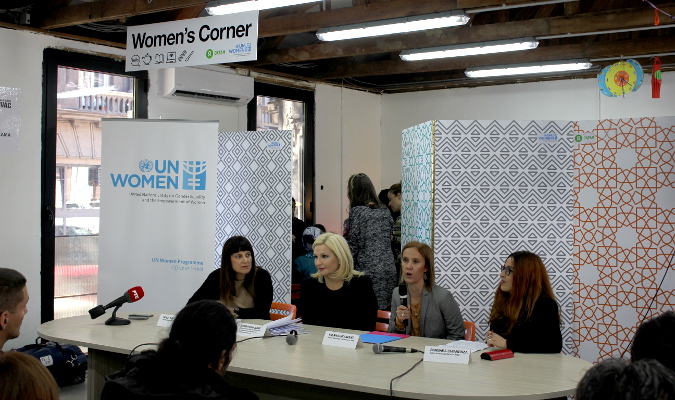Women refugees and migrants get a place of their own
Complete with Middle Eastern music, smells of home-cooked recipes and plenty of smiling faces, Women’s Corner officially opened its doors in Belgrade.Date:

“I crossed borders seven times, I was arrested, walked for a week without a break. Now I am here [in Serbia] for two months and I gave birth to a baby girl 11 days ago. This Corner means a world to us,” says Ferista, who left Afghanistan while seven months pregnant. She is one of the hundreds women who visit the Miksaliste refugee transit centre in the Serbian capital every day.
The Women’s Corner in Belgrade, a place where women refugees and migrants mingle with Serbian women to exchange experiences, feels like a best friend’s living room. Officially opened on 6 October with support from UN Women in Serbia and Oxfam, the Women’s Corner is part of the Refugee Aid Miksaliste transit centre, and offers a safe place for women to rest and take their mind off their long journeys and uncertain futures.
The Miksaliste transit centre opened its doors just over a year ago for migrants and refugees to receive food, clothes, medical assistance, hygiene products. More than 130,000 refugees and migrants have received assistance since its opening, serving up to 1,000 people a day in the peak of the refugee crisis.
Read the full story on UN Women's regional web site for Europe and Central Asia